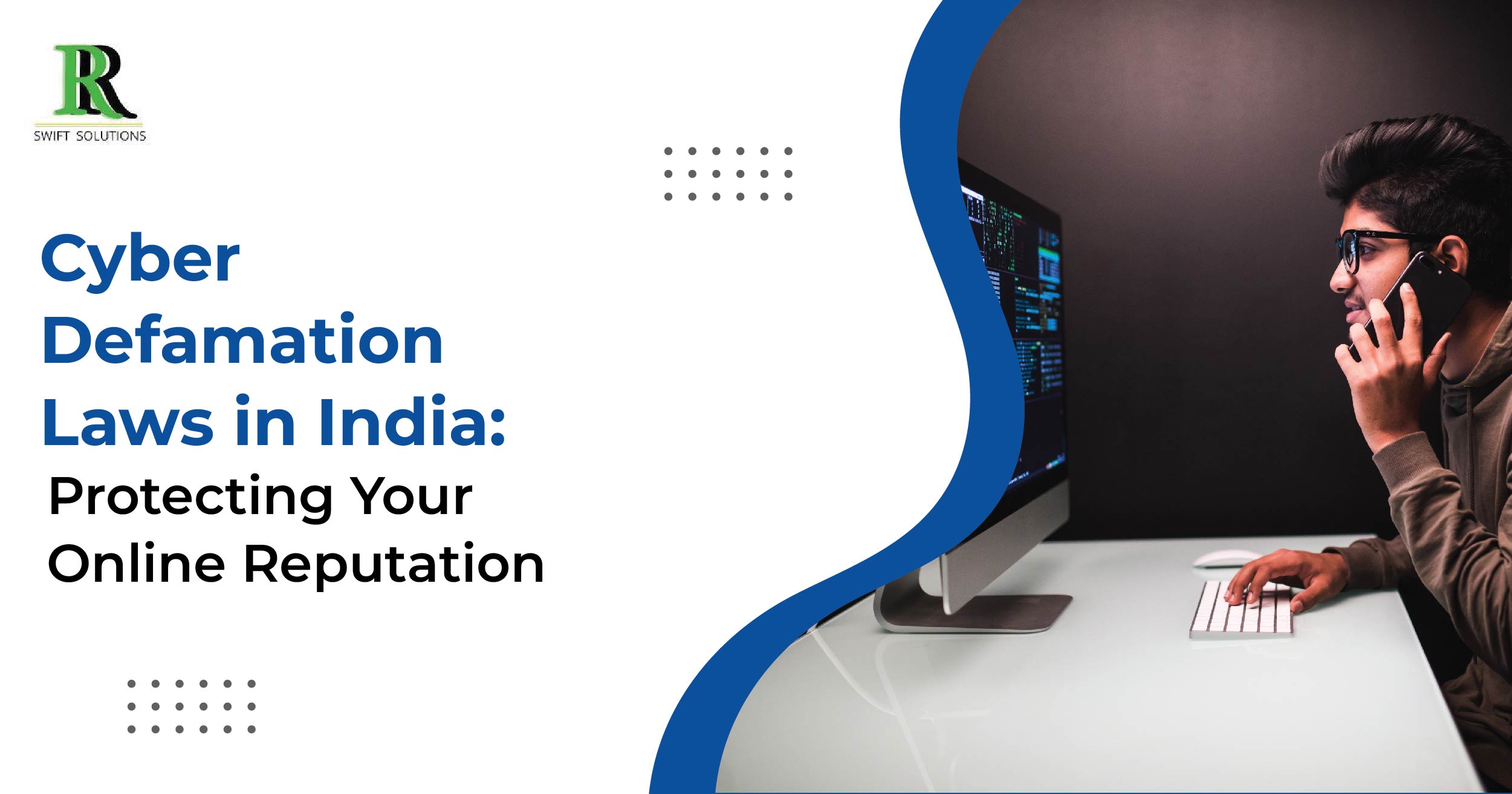In today’s interconnected world, where the internet plays a central role in our daily lives, the issue of cyber defamation in cyber security has become increasingly prevalent. With the rise of social media platforms, online forums, and digital communication channels, individuals are more susceptible than ever to having their reputation tarnished by false and defamatory statements spread online. In this blog post, we’ll delve into the nuances of cyber defamation laws in India and explore how individuals can safeguard their online reputation from malicious attacks.
What Is Cyber Defamation?
Cyber defamation, also known as online defamation, refers to the act of making false and damaging statements about someone on the internet with the intention of harming their reputation. This can take various forms, including defamatory posts on social media, negative reviews on online platforms, or malicious comments on blogs and forums. Cyber defamation in cyber security is a serious concern as it can have far-reaching consequences for the victim, affecting their personal and professional life.
Types of Defamation
1. Libel
Libel refers to written or published defamatory statements that are communicated to a third party. This can include defamatory posts on social media, blogs, online articles, or any other form of written communication disseminated online.
2. Slander
Slander involves spoken defamatory statements that are made verbally or through audio-visual mediums. This can include defamatory remarks made in podcasts, live streams, video chats, or any other form of oral communication transmitted over the internet.
Importance of Cyber Defamation Laws
In the digital age, where information travels at the speed of light, cyber defamation laws play a crucial role in protecting individuals’ online reputation and ensuring accountability for those who engage in defamatory behavior.
Some key reasons why cyber defamation laws are important include:
- Preserving Reputation: Cyber defamation laws help safeguard individuals’ reputation from false and malicious attacks online.
- Promoting Accountability: By holding perpetrators accountable for their actions, cyber defamation laws deter others from engaging in similar behavior.
- Protecting Freedom of Speech: While cyber defamation laws aim to curb harmful speech, they also seek to strike a balance between protecting individuals’ reputation and upholding freedom of speech online.
- Fostering Trust: Clear and enforceable cyber defamation laws contribute to creating a safer and more trustworthy online environment for all users.
- Supporting Economic Growth: A strong legal framework for cyber defamation encourages online commerce and investment by providing assurance to businesses and individuals that their reputation will be protected from online attacks.
Legal Framework of Cyber Defamation in India
In India, cyber defamation is primarily addressed by the Indian Penal Code (IPC), particularly Section 499 which defines defamation and Section 500 which prescribes punishment for the offense. While the Information Technology Act (IT Act), 2000 previously played a role through Section 66A, this section was struck down by the Supreme Court of India in 2015 to protect freedom of speech. The Indian judiciary continues to play a vital role in interpreting and applying these laws in the evolving digital landscape.
What Constitutes Defamation in CyberSpace?
Defamation in the cyber space encompasses a wide range of activities, including:
1. False Statements
Making false statements about someone online with the intent to harm their reputation constitutes defamation. These statements can include false accusations, rumors, or misleading information.
2. Impersonation
Impersonating someone online and posting defamatory content under their name can also constitute defamation. This can involve creating fake social media accounts or websites to spread false information.
Rights and Responsibilities of Internet Users
As internet users, we have certain rights and responsibilities to uphold when engaging in online communication. Some key rights and responsibilities include:
- Right to Freedom of Speech: Internet users have the right to express their opinions and viewpoints online, provided they do not engage in defamatory behavior.
- Respect for Privacy: Internet users should respect the privacy rights of others and refrain from sharing sensitive or confidential information without consent.
- Accountability for Content: Internet users are responsible for the content they publish online and should ensure that it is accurate, truthful, and respectful of others’ rights.
- Protection from Harassment: Internet users have the right to be free from harassment, cyberbullying, and other forms of online abuse.
- Compliance with Laws: Internet users must comply with applicable laws and regulations governing online conduct, including cyber defamation laws.
Legal Remedies for Cyber Defamation Victims
Victims of cyber defamation have several legal remedies available to them to seek redress for the harm caused to their reputation. Some common legal remedies include:
- Civil Lawsuits: Victims can file a civil lawsuit for defamation against the individual or entity responsible for publishing defamatory content.
- Injunctive Relief: Victims can seek injunctive relief to remove defamatory content from the internet and prevent further dissemination.
- Criminal Complaints: In cases of serious cyber defamation, victims can file a criminal complaint with law enforcement authorities, leading to the prosecution of the perpetrator.
- Monetary Damages: Victims may be entitled to monetary damages for the harm caused to their reputation, including compensation for lost income, emotional distress, and reputational damage.
- Alternative Dispute Resolution: In some cases, victims may opt for alternative dispute resolution mechanisms, such as mediation or arbitration, to resolve defamation disputes outside of court.
Challenges and Limitations of Cyber Defamation Laws
While cyber defamation laws play a vital role in protecting individuals’ online reputation, they are not without their challenges and limitations. Some key challenges include:
- Jurisdictional Issues: Determining jurisdiction in cyber defamation cases can be complex, especially when the perpetrator and victim are located in different countries.
- Anonymity of Perpetrators: Perpetrators of cyber defamation often hide behind the veil of anonymity, making it difficult to identify and hold them accountable for their actions.
- Proving Damages: Proving damages in cyber defamation cases can be challenging, as reputational harm is often intangible and difficult to quantify.
- Cost and Time: Pursuing legal action for cyber defamation can be costly and time-consuming, deterring some victims from seeking redress through the legal system.
- Lack of Awareness: Many internet users are unaware of their rights and the legal recourse available to them in cases of cyber defamation, leading to underreporting of such incidents.
Best Practices for Managing Online Reputation
To mitigate the risk of cyber defamation and protect their online reputation, individuals can adopt several best practices, including:
- Monitor Online Presence: Regularly monitor your online presence to identify and address any potentially defamatory content.
- Think Before You Post: Exercise caution when sharing information online and avoid posting or reposting content that could be construed as defamatory.
- Engage Responsibly: Interact with others online in a respectful and constructive manner, refraining from engaging in cyberbullying, trolling, or harassment.
- Seek Legal Advice: If you become a victim of cyber defamation, seek legal advice from a qualified attorney who specializes in internet law to explore your options for recourse.
- Educate Others: Raise awareness about cyber defamation and its implications among your peers, colleagues, and community members to promote responsible online behavior.
FAQs About Cyber Defamation in Cyber Security
Q1: Can I be held liable for sharing defamatory content posted by someone else?
A: Yes, sharing defamatory content online can expose you to liability for defamation, even if you did not create the content yourself. It’s essential to exercise caution when sharing information online and verify its accuracy before reposting.
Q2: How can I remove defamatory content from the internet?
A: Depending on the circumstances, you may be able to request the removal of defamatory content from the website or platform hosting it. Alternatively, you can seek legal recourse through civil litigation or pursue other remedies provided by cyber defamation laws.
Q3: Can I sue someone for defamation if they criticize me online?
A: Criticism alone does not constitute defamation unless it is false and causes harm to your reputation. However, if the criticism crosses the line into making false statements about you with the intent to harm your reputation, you may have grounds for a defamation lawsuit.
Q4: What evidence do I need to prove cyber defamation in court?
A: To prove cyber defamation in court, you will need evidence demonstrating that the defamatory statements were made, that they were false, that they were published or communicated to a third party, and that they caused harm to your reputation.
Q5: Can I pursue criminal charges for cyber defamation?
A: In cases of serious cyber defamation, such as hate speech or threats of violence, you may be able to pursue criminal charges against the perpetrator. However, criminal prosecution typically requires the involvement of law enforcement authorities and may be subject to certain legal thresholds.
Conclusion
In conclusion, cyber defamation in cyber security poses a significant threat to individuals’ online reputation and can have far-reaching consequences for victims. By understanding the legal framework surrounding cyber defamation, exercising responsible online behavior, and seeking legal recourse when necessary, individuals can protect themselves from the harmful effects of online defamation. Your comments and feedback on this topic are highly valued – feel free to share your thoughts below.
Take the Next Step in Cybersecurity Excellence
Ready to take your cybersecurity career to new heights? Enroll in our Cyber Security Online Training program and gain invaluable hands-on experience directly from India. Break free from geographical constraints and join a global community of aspiring cybersecurity professionals. Take the first step towards mastering the intricacies of cybersecurity and unlock endless possibilities for growth and advancement. Don’t miss out – enroll now and secure your future in this dynamic field.
*Disclaimer: This blog post is for informational purposes only and should not be construed as legal advice. For specific legal inquiries or concerns, please consult a qualified attorney.



